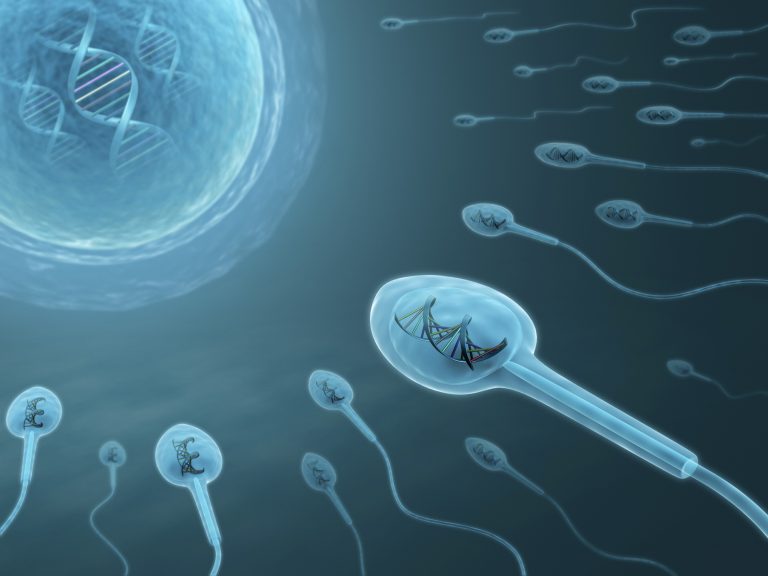
Exposure to chemotherapy earlier in life could increase a man’s chance of having a child with a genetic disorder, suggests research carried out at the Wellcome Sanger Institute in the U.K.
In a study including over 20,000 families, the scientists found 12 children had up to seven times higher levels of germline mutation than the rest of the population. Almost half of these children had fathers who had previously been treated with chemotherapy.
“An increasing germline-mutation rate results in an increased risk of offspring being born with a dominant genetic disorder,” write Matthew Hurles, Head of Human Genetics at the Sanger Institute, and colleagues in the journal Nature.
“Long-term effects of mutation rate differences as a result of mutation accumulation have been demonstrated in mice to have effects on reproduction and survival rates and there may be a similar impact in humans.”
The authors looked for germline hypermutation in two combined cohorts of parent-child trios from the Deciphering Developmental Disorders study (7930 trios) and the rare disease arm of the 100,000 Genomes Project (13,949 whole-genome sequenced trios).
In the overall group of 21,879 trios, 12 children had a hypermutated genome with between two and seven-times more new single nucleotide polymorphisms (SNPs) than would normally be expected after accounting for parental age. In at least eight of the 12 cases, this excess mutation came from the father.
Seven of these eight families were investigated in detail. Of these, two fathers had rare genetic variants that had a negative impact on DNA repair mechanisms. The other five had all previously undergone chemotherapy (platinum-based or mustard-derived alkylating agents) treatment before conceiving.
While these findings need validation and further investigation, they do suggest some men might be at higher risk for sperm damage after exposure to certain types of chemotherapy.
“Chemotherapy is an incredibly effective treatment for many cancers, but unfortunately it can have some damaging side effects. Our research found a plausible link between two types of chemotherapy and their impact on sperm in a very small number of men,” said Hurles, in a press statement.
“These results require further systematic studies to see if there is a causal link between chemotherapy and sperm mutations, and if there is a way of identifying individuals at risk prior to treatment so they could take family planning measures, such as freezing their sperm prior to treatment.”













